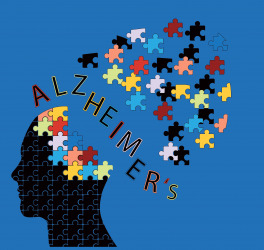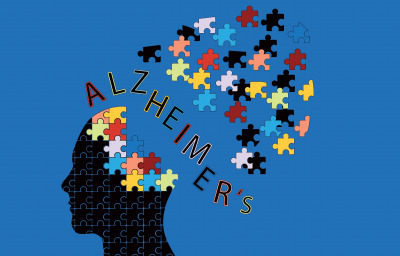
Medicare is a government program designed to provide medical coverage to residents of the United States over age 65. People with disabilities have different needs when it comes to health care coverage. Understanding the different types of Medicare coverage and how to enroll is essential.
Enrollment and eligibility for Medicare for people with disabilities can be complex. People with disabilities have different requirements from those who do not have a disability. This article looks at Medicare eligibility and Medicare enrollment of people with disabilities. Learn about the enrollment process and other vital factors to get your Medicare card.
Medicare for People With Disabilities
If you have a disability that makes it challenging to live alone and get the care you need, you may be able to get Medicare. Medicare plans in Florida cater to people who have a disability and are under 65 years old.
This plan offers some of the same benefits as Original Medicare. It also includes additional coverage for certain medical supplies and equipment. Equipment includes wheelchairs, walkers, and other devices to help manage daily tasks.
Here’s an overview of the different plans available:
- Plan A – This is a traditional Medicare Advantage Plan that provides coverage for doctor visits and hospitalization. It also provides some coverage for long-term care.
- Plan B covers doctor visits, hospitalization, and other services not covered by other Medicare plans.
- Plan C – This plan covers prescription drugs only.
- Plan D covers prescription drugs only and has no premiums or deductibles. It also has no out-of-pocket limit on how much you spend on your prescriptions each year or during the year.
Medicare for People with Disabilities offers protection against high medical bills. This can be very expensive for people with disabilities. The program pays for medical equipment, home health care, and other necessary services to treat a disability. The program also pays for preventive care, such as screenings and immunizations. These are needed by disabled people but not covered by Original Medicare (Part A and Part B).
Eligibility for People With Disabilities
Medicare is a federal health insurance program for people aged 65 and older and certain people with disabilities. The plan will cover most of your doctor visits, hospital stays, and prescription medications.
Original Medicare is the federally run health insurance program for people 65 and over or with specific disabilities. To be eligible for Medicare coverage, you must meet specific requirements. People with disabilities who qualify for Medicare have several options for coverage.
Medicare Advantage, Part C, is a health insurance plan offered by a private company. The company contracts with Medicare to provide all Part A and B benefits. Lastly, Part D is the prescription drug coverage provided by Medicare. If you have a disability and work full time, you may meet Social Security Disability (SSD) payments and Medicare eligibility requirements.
If you have a disability, you may be eligible for Medicare even if you are not yet 65. To qualify for Medicare, you must:
- Be receiving Social Security Disability Insurance (SSDI) benefits
- Have been receiving SSDI benefits for at least 24 months
- Be eligible for benefits under the Railroad Retirement Board (RRB)
To determine if you are eligible for Medicare, you must contact the Social Security Administration or your state Medicaid office. You will need to provide them with information about your disability, income, and resources. Once determined to be eligible, you must sign up for Medicare through the Social Security Administration.
How to Apply for Medicare
Are you a disabled person under the age of 65 interested in enrolling in Medicare? If so, you may be wondering how to go about it. The Social Security Administration will determine whether you qualify for Medicare before enrolling. The first step to enrolling in Medicare is to contact your local Social Security office and apply for a Medicare card.
If you are disabled and have been receiving Social Security Disability Insurance (SSDI) benefits for 24 months, you are eligible for Medicare. You can also qualify if you have ALS, Parkinson’s, Multiple Sclerosis, end-stage heart disease, or other conditions.
The Social Security Administration lists what they consider to be disabilities. It includes any medical condition that limits your ability to work and restrictions on essential activities.
If you are disabled and enrolled in Medicare, your enrollment process will be different than the one for people who are not disabled. Several Medicare plans are available in Florida, each with different enrollment and eligibility requirements:
- The federal government manages original Medicare. It’s available to all people with disabilities who meet the age and Social Security requirements.
- Medicare Advantage plans. These are private insurance plans that contract with Medicare. They are available to people with disabilities who meet the age, Social Security, and residency requirements.
- Medicare prescription drug plans. These stand-alone plans offer prescription drug coverage. They are available to people with disabilities who meet the age, Social Security, and residency requirements.
Where to Seek Help With Medicare for People With Disabilities
For people with disabilities, the enrollment and eligibility process for Medicare can be confusing and complicated. Many Medicare advisors can help you understand the process and get your needed coverage.
You can go to a few places to get help with enrollment and eligibility for Medicare for people with disabilities.
- You can contact the Social Security Administration
- Centers for Medicare and Medicaid Services
- Your state or local Medicaid office
You can also get help from several private organizations helping people with disabilities navigate the Medicare system.
Each of these organizations can help you with different aspects of the enrollment and eligibility process. The Social Security Administration can help you with questions about your disability benefits. They explain how they can affect your Medicare eligibility.
The Centers for Medicare and Medicaid Services can help you understand the Medicare program. You will understand what benefits you may be eligible for. Your state or local Medicaid office can help you with questions about your Medicaid coverage and how it can work with Medicare. And private organizations can help you with everything from finding the right Medicare plan.
Takeaway
Access to affordable medical care can be daunting when you have no idea what you’re doing. These days Medicare beneficiaries are never too far a finger snap away from medical assistance. The program is famous for its eligibility requirements on age and the severity of certain medical conditions. Yet there are other ways to qualify. Some rare exceptions have enabled people with disabilities under age 65 to access this valuable entitlement program.








